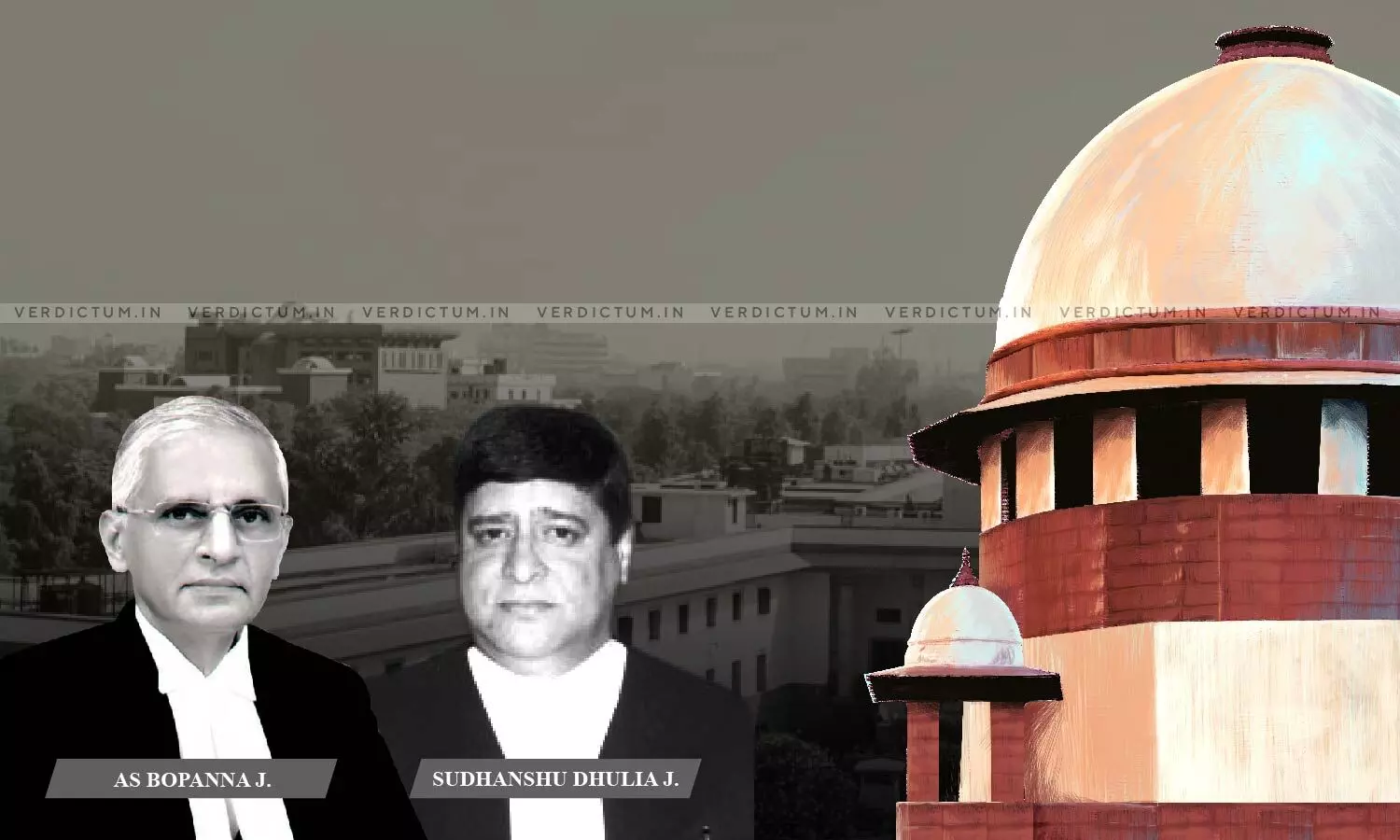
SC To Examine Procedural Question Of Refusal Of Curative Petitions By Its Registry
 |
|The Supreme Court has agreed to examine a procedural question as to whether its registry can refuse to accept a curative petition and reject it at the threshold following the dismissal of the review plea in open court.
Usually, a review petition is decided by circulation by the judges in the chamber unless the court agrees to hear it in open court. The disposal of a petition by circulation means by the judges themselves without the presence of lawyers.
An exception has been made for review petitions arising out of death penalty cases and they are heard in open court.
A bench of Justice AS Bopanna and Justice Sudhanshu Dhulia passed the order after hearing a miscellaneous application filed by M/s Brahmaputra Concrete Pipe Industries in a curative petition against the review of the order passed by the apex court on December 18, 2019.
M/s Brahmaputra Concrete Pipe Industries is involved in a legal battle against the Assam State Electricity Board over a financial dispute arising out of payment for the supply of pre-stressed cement concrete poles.
The bench in its January 23 order said, "In these appeals/matters, the petitioners argue that even if a review petition is heard and dismissed in open Court, the Registry cannot refuse to accept a curative petition and reject at the thresh hold."
It noted the Registrar (J-IV) declined to register the curative petition on the ground that the review petitions of the appellants/petitioners were dismissed upon hearing in open Court.
The court said such dismissal of the review petition was not by circulation and the Registrar's order to that effect was passed on October 31, 2022.
Advocate Anand Sanjay M Nulli, appearing for the company, submitted the conclusion reached by the Registry runs contrary to the 2002 decision of the apex court in Rupa Ashok Hurra versus Ashok Hurra and others (the verdict by which the concept of curative petition was developed by the apex court).
The bench said, "This matter(s) also requires interpretation of Rule 2(1) Order XLVIII of the Supreme Court Rules, 2013, it was urged. We have also been apprised at the Bar that there would be many other matters of similar nature, which are liable to be affected by any decision reached by this Court in this case".
Rule 2 (1) Order XLVIII of the Supreme Court Rules, 2013 says, "The petitioner, in the curative petition, shall aver specifically that the grounds mentioned therein had been taken in the Review Petition and that it was dismissed by circulation."
The apex court appointed Senior Advocate Raju Ramachandran, as amicus curiae to assist it in the matter and posted it for further hearing on January 30.
A review petition is a request to the Supreme Court to have its judgment reviewed, while a curative plea is the last resort for a petitioner to seek judicial remedy for grievances by correcting the errors in a judgment.
With PTI Inputs